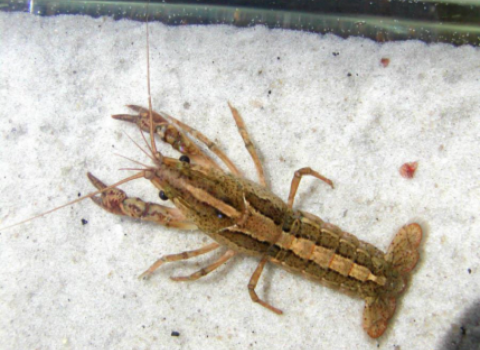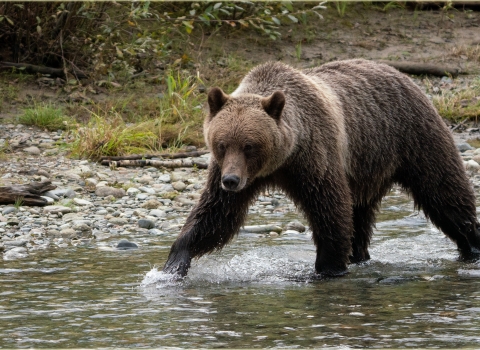Following additional legal determinations about the application of the Endangered Species Act, the U. S. Fish and Wildlife Service today announced a proposal to classify both wild and captive chimpanzees as endangered. The decision reflects growing threats to the species and aligns the chimpanzee’s status with existing legal requirements as well as protections for other species. Currently, only wild chimpanzees are listed as endangered while captive chimpanzees are listed as threatened.
The rule proposed today would correct this inconsistency after the Service determined that the ESA does not allow for captive-held animals to be assigned a separate legal status from their wild counterparts. In addition, the Service found threats to the chimpanzee from habitat loss, poaching, and disease have intensified and expanded since wild populations were listed as endangered in 1990.
The Service received a legal petition in 2010 from a coalition of organizations, including the Jane Goodall Institute, to list all chimpanzees as endangered, prompting a formal review of the status of chimpanzees under the ESA. The proposal will publish in the Federal Register on June 12, 2013, and will be open for public comment for 60 days.
“Chimpanzees are one of the world’s most iconic species because of their connections and similarity to humans, ” said Service Director Dan Ashe. “We all know the important work that British primatologist Jane Goodall has done to understand chimpanzees in the wild and raise worldwide awareness about their plight. Our hope is that this proposal will ignite renewed public interest in the status of chimpanzees in the wild. ”
“I was so pleased to hear about the proposed rule. This is exceptional news for all chimpanzees and for all the petitioners, especially the Humane Society of the United States, who have worked so hard on this issue, ” said Dr. Jane Goodall, DBE, founder of the Jane Goodall Institute and UN Messenger of Peace. “This decision gives me hope that we truly have begun to understand that our attitudes toward treatment of our closest living relatives must change. I congratulate the U. S. Fish and Wildlife Service for this very important decision."
Chimpanzees are found in a wide but discontinuous distribution in 22 countries of Equatorial Africa. Across the range of the species, high deforestation rates are destroying and fragmenting forests. Widespread poaching, capture for the pet trade, and outbreaks of disease are impeding chimpanzees’ ability to sustain viable populations in the wild.
The Service’s International Affairs program has funded $8.6 million in grants for conservation efforts to protect chimpanzees, matched by an additional $10.3 million in leveraged funds. These grants have supported field projects in 19 countries and include: the development of conservation policies and local leadership to ensure the long-term survival of chimpanzees and gorillas, in partnership with the Wildlife Conservation Society; improving conservation of the last remaining West African chimpanzees, in partnership with Wild Chimpanzee Foundation-Africa; funding long-term research and conservation of gorillas and chimpanzees in the Ebo Forest, Cameroon, in partnership with Zoological Society of San Diego; and complementing outreach activities conducted by the Wildlife Conservation Society and Rwandan park authorities to strengthen engagement in protecting chimpanzees in Nyungwe National Park.
If this proposal is finalized, certain activities would require a permit, including import and export of chimpanzees into and out of the United States, “take” (defined by the ESA as harm, harass, kill, injure, etc.) within the United States, and interstate and foreign commerce. Permits would be issued only for scientific purposes or to enhance the propagation or survival of the affected species, including habitat restoration and research on chimpanzees in the wild that contributes to improved management and recovery. The Service will work closely with the National Institutes of Health, the Association of Zoos and Aquariums, the biomedical research community, and other affected parties to consider the implications of this proposed rule on their operations.
Read what others are saying about the Service proposal at http://www.fws.gov/home/newsroom/woas062013.html.
For more information, visit http://www.fws.gov/home/newsroom/chimpanzeerecovery0610013.html.
The ESA provides a critical safety net for fish, wildlife and plants and has prevented the extinction of hundreds of imperiled species, as well as promoting the recovery of many others. The Service is actively engaged with conservation partners and the public in the search for improved and innovative ways to conserve and recover imperiled species.


